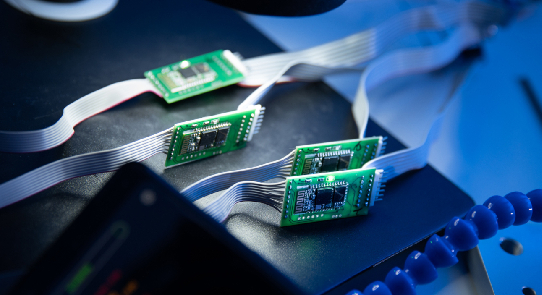The realm of technology is no stranger to revolutionary shifts, each bringing its unique challenges and opportunities. Among the most potent of these upcoming technological titans is quantum computing. But as with all advancements, it brings with it not just promise but peril—particularly for the fortress walls of our current cryptographic systems, protecting your information for better online safety.
The Quantum Paradigm
At its core, quantum computing diverges fundamentally from classical computing. While classical computers process information in binary bits (0s and 1s), quantum computers utilize quantum bits, or qubits.
These qubits can exist in a state of superposition—effectively being in both states, 0 and 1, simultaneously. This property, coupled with quantum entanglement, allows quantum computers to process vast amounts of data at phenomenal speeds, solving problems that would take classical computers millennia in mere seconds.
The Pillars of Traditional Cryptography
To comprehend the threat quantum computers pose, it’s essential to understand the foundation of current cryptographic systems. Two widely adopted encryption methods, RSA (Rivest–Shamir–Adleman) and ECC (Elliptic-Curve Cryptography), hinge on the inherent difficulty of certain mathematical problems. RSA, for instance, is grounded in the challenge of factoring extremely large numbers—a task that’s exponentially tough for classical machines. ECC, on the other hand, relies on the discrete logarithm problem in the realm of elliptic curves. Both these problems form the bedrock of our encrypted communications, online banking, e-commerce, and more.
Quantum’s Cryptographic Crosshair
Enter quantum computing with its unique algorithms, notably Shor’s algorithm. Designed specifically for quantum machines, Shor’s algorithm can factor large numbers with astonishing efficiency, rendering RSA’s foundational problem trivial. Similarly, ECC’s reliance on the discrete logarithm problem is jeopardized, as quantum algorithms can solve this with exponential speedup too.
Simply put, the very problems that seemed insurmountable for classical computers become feasible for quantum ones. The implications are profound: secure communications could be decrypted, confidential data laid bare, and the sanctity of online platforms compromised.
Beyond Encryption: Broader Implications
While the most immediate threat is to encryption, the quantum menace extends further. Digital signatures, which confirm the authenticity of digital messages or documents, are also at risk. Many digital signature schemes would crumble under quantum capabilities, shaking the very trust mechanisms underpinning online transactions.
Moreover, consider data previously encrypted and stored, thinking it was safe. With quantum decryption, past communications, if recorded, might be retroactively compromised. The historical confidentiality of data is, thus, also at stake.
Quantum Dawn: Are We Prepared?
The impending quantum age isn’t all doom and gloom. Recognizing the potential vulnerabilities, researchers are in a race against time to develop quantum-resistant cryptographic methods. Post-quantum cryptography, as the field is known, seeks to build systems that remain secure even in the face of a quantum onslaught. These new algorithms, based on different mathematical problems believed to be resistant to quantum attacks, are in various stages of research and development.
Governments, industries, and standardization bodies are already taking proactive steps. The National Institute of Standards and Technology (NIST), for instance, has been in the process of evaluating and standardizing post-quantum cryptographic algorithms.
The Quantum Timeline: When Will the Threat Materialize?
It’s crucial to discern that while quantum computing poses a significant threat, we aren’t on the cusp of this cryptographic upheaval just yet. Quantum computers of the scale required to break modern encryption—often termed “large-scale universal quantum computers”—remain theoretical constructs. Current quantum machines, while impressive, are still in their infancy, facing challenges like error rates and qubit stability. It might be decades before they achieve the computational prowess to dismantle current cryptographic methods.
Transitioning to Quantum-Safe Alternatives
Acknowledging the eventual arrival of powerful quantum machines, organizations need to begin their transition to quantum-safe cryptographic solutions. This isn’t merely about swapping out algorithms but involves a comprehensive assessment of digital infrastructure, updating cryptographic libraries, training personnel, and potentially overhauling legacy systems. An effective transition is a multifaceted endeavor, encompassing both technology and human elements.
The Role of Hybrid Systems
In the interim, as we journey towards a full-fledged quantum-resistant world, hybrid cryptographic systems might be the answer. These systems combine classical cryptographic methods with their quantum-resistant counterparts, harnessing the strengths of both. Such a hybrid approach ensures compatibility with current systems while offering enhanced security against potential quantum threats.
The Global Collaborative Push
Given the universal implications of quantum’s rise, international collaboration is paramount. Beyond national entities like NIST, global alliances are coming to the fore. Forums, consortiums, and collaborative research initiatives are fostering dialogue, setting standards, and driving innovation in quantum-resilient technologies. This shared pursuit underscores the global recognition of quantum computing’s significance and the collective endeavor to safeguard our shared digital future.
Final Thoughts: A Dynamic Equilibrium
The narrative of quantum computing and cryptography isn’t one of mere threat but of equilibrium. Just as quantum capabilities challenge our cryptographic foundations, they also catalyze innovation in defense mechanisms. This dynamic equilibrium drives technological evolution.
In embracing the quantum age, it’s essential to view it not just through the lens of challenges but as a transformative force, pushing the boundaries of what’s possible. By staying informed, proactive, and adaptive, we can ensure that our cryptographic citadels, though challenged, will never be vanquished.
The Author



